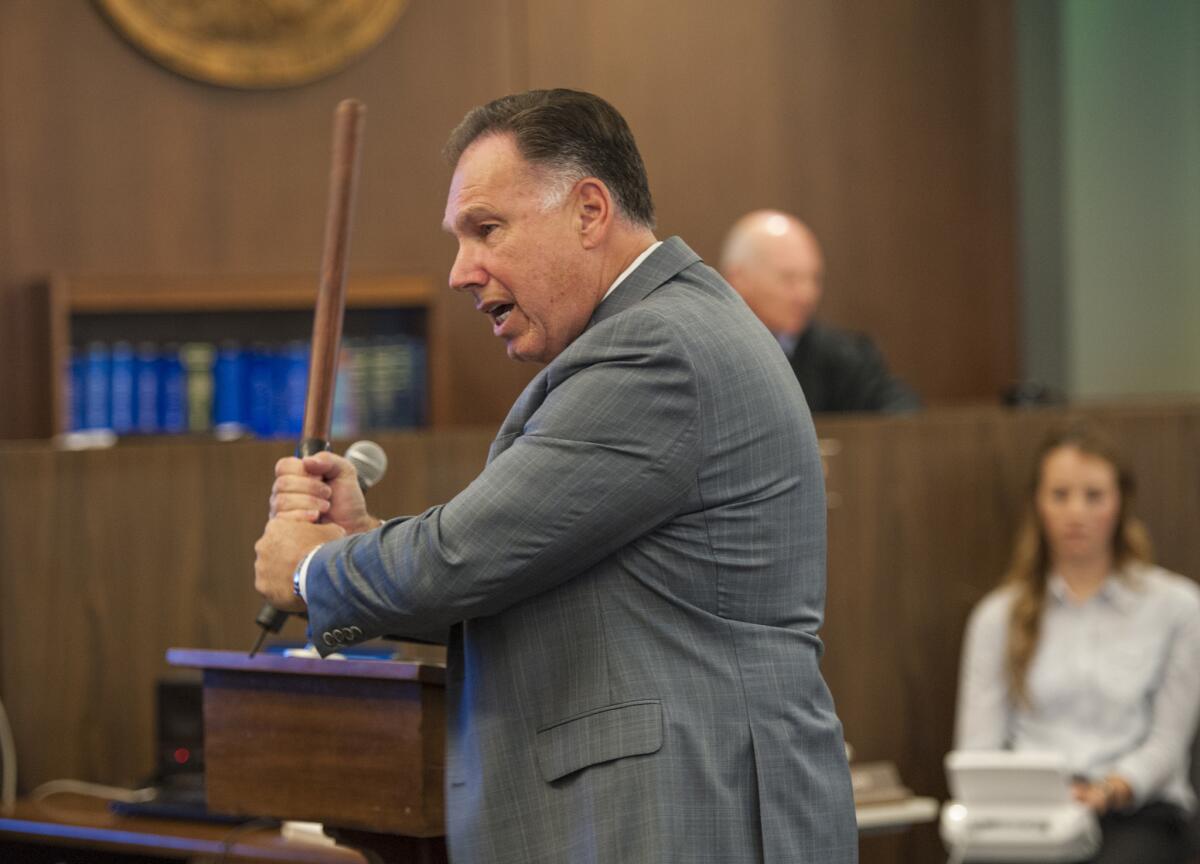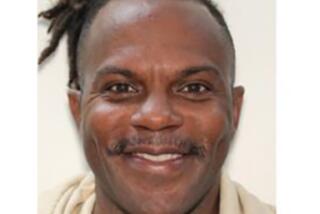Kelly Thomas barely alive when he reached hospital, surgeon says

Kelly Thomas arrived at the hospital comatose, with multi-organ failure, multiple fractures to his face and ribs and signs of having suffered respiratory and cardiac arrest, the trauma surgeon who treated him testified Tuesday.
Dr. Michael Lekawa, chief of trauma surgery at UC Irvine Medical Center in Orange, was on duty the night of July 5, 2011, when Thomas arrived at that hospital after a confrontation with Fullerton police. He died five days later.
Two former officers, Manuel Ramos and Jay Cicinelli, are on trial for allegedly killing the mentally ill homeless man. Ramos is charged with second-degree murder and involuntary manslaughter, Cicinelli with involuntary manslaughter and excessive force. The trial is in its second week.
Lekawa was called by prosecutors to describe Thomas’ condition after the confrontation. Thomas was taken to UC Irvine Medical Center after a brief stop at St. Jude Medical Center in Fullerton where a breathing tube had been inserted into his throat.
When he arrived, Thomas was breathing through the tube, which was attached to an air bag that was squeezed by hand, Lekawa said. His blood pressure was extremely low and his PH score indicated that his body was producing so much acid that, the doctor said, he has never seen a patient with a similar PH score live.
“I’ve never seen a survivor, ever, in my 18 years,” he said.
The cause of death, Lekawa said, was inadequate oxygen to Thomas’ brain. During the confrontation with police, “various persons were on [Thomas] and holding him down … preventing him from breathing,” Lekawa said.
“He was doing everything he could to breathe but becoming less and less mentally with it to do what he could to breathe,” he said.
Ultimately, Thomas stopped breathing, which caused his heart to stop, leading to “irreversible brain damage,” Lekawa said.
A paramedic testified earlier that Thomas had been breathing slowly and had a pulse when he was lifted into an ambulance after the confrontation. He flat-lined halfway to St. Jude and paramedics gave him CPR.
During cross-examination by Ramos’ defense attorney John Barnett, Lekawa said Thomas’ fractured ribs could have been caused by the CPR.
Barnett also asked Lekawa if Thomas was able to breathe when he cried out during the confrontation that he could not breathe. A videotape synched with audio of the confrontation shows Thomas repeatedly saying, “I cannot breathe.”
“When he’s speaking clearly and saying ‘I cannot breathe,’ he can speak, right?” Barnett asked.
“When he says he cannot breathe, he is inadequately breathing. He is breathing some but it’s still inadequate,” Lekawa said.
Lekawa also testified that he contacted prosecutors in the weeks after Thomas’ death to tell them that a paramedic who brought Thomas to the hospital had said there had been problems inserting Thomas’ breathing tube at St. Jude. Lekawa said he was concerned that police might be unfairly blamed for Thomas’ death.
The surgeon said he later investigated the paramedic’s statement but found that records at St. Jude didn’t support it.
ALSO:
L.A. Sheriff’s Department indictments: ‘Sad day,’ Baca says
Paul Walker crash: Men accused of stealing Porsche rooftop charged
Lamar Odom sentenced to probation, alcohol treatment after DUI plea
More to Read
Sign up for Essential California
The most important California stories and recommendations in your inbox every morning.
You may occasionally receive promotional content from the Los Angeles Times.











